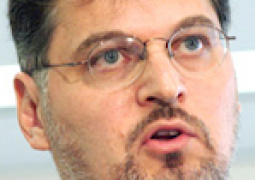UNICEF,
with funding support from the European Union, has partnered with the Government
of The Gambia through the National Nutrition Agency (NaNA) and the Ministry of
Health and Social Welfare, to ensure that lactating mothers receive D600
monthly payments to mitigate food insecurity and malnutrition in The Gambia.
The first payment cycle for the BReST Project kicked off in Albreda, North Bank Region, on 16th April 2017, leading the team to health facilities in Essau, Kuntair and Ngayen Sanjal before the national launching of the project at the Basse Health Centre, reaching almost 500 women in that first half of the payment cycle. A set of five more health facilities will be reached by the end of this cycle on 25th April 2017, with a targeted reach of 1,302 women.
The UNICEF Resident Representative Sara Beysolow Nyanti, in a statement delivered by the Deputy Representative at the national launching of the project, expressed delight to see that the BReST project has grown from conception to implementation stage. He added that ‘UNICEF, in line with the adoption of the Sustainable Development Goals has decided to redouble efforts to fight infant malnutrition.
The case for investing in nutrition has never been greater both at the global level as well as at the country level.’ Mr Leighton stressed that the BReST Project ‘will be a catalyst of change at the community and household levels through improving knowledge and behaviours on better nutrition, sanitation and hygiene practice whilst simultaneously building financial literacy of mothers’.
The Governor of the Upper River Region, Fatoumatta Jammeh Touray, welcomed the BReST team, invited guests, and beneficiaries to her region. She noted that the BReST Project ‘will not only improve nutrition, but will also strengthen and improve institutional delivery in health facilities’. The Governor used the opportunity to commend UNICEF, EU and the implementing partners from Government for initiating this project, with the hope that tangible results will be achieved by the end of the project cycle.
Binta Jammeh Sidibeh, the Executive Director of the Women’s Bureau, delivered the launching statement on behalf of the Honorable Minister for Women’s Affairs, Fatoumatta Jallow Tambajang. Madame Sidibeh thanked UNICEF and the European Union for the commitment to ensure nutrition security in The Gambia, by targeting and providing crucial support for mothers and children in the most vulnerable communities in The Gambia. She reaffirmed the Gambian Government’s commitment to improving lives of women and children, as reflected in various government policies and projects.
Since 2012, UNICEF has supported the Government of The Gambia in establishing an inclusive social protection system through capacity development programmes for various national stakeholders including the development of a social protection strategy and the National Social Protection Policy 2015 – 2025. Therefore, the BReST Project will be an excellent piloting opportunity to potentially scale up social protection programming as part of the implementation of the National Social Protection Policy.
Other speakers at the ceremony included the Director of Health Services, Momodou Lamin Waggeh, and the Executive Director of the National Nutrition Agency, Modou Cheyassin Phall, who also served as the chairperson of the launching ceremony.
Ndungu Jaiteh from Allumhareh village in the URR was one of the first beneficiaries of the BReST Project in the region. With her newborn baby, Ndungu successfully registered into the programme and received her first monthly payment of D600. She expressed her happiness as a beneficiary, stating that the cash transfers and nutrition education will support her in adopting better nutrition care practices for herself and her child.
The BReST Project is expected to reach a total of 5,500 beneficiaries in the three target regions, contributing to better nutrition security and addressing challenges of malnutrition among children in The Gambia.
The
BReST Project is a UNICEF Project funded by the European Union and jointly
implemented by the National Nutrition Agency and the Department of Social
Welfare.




